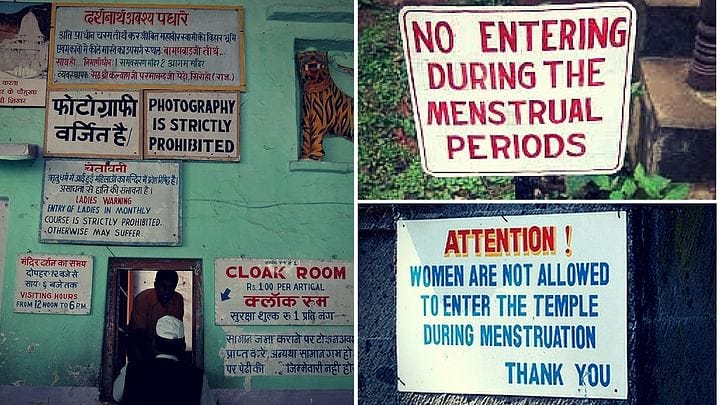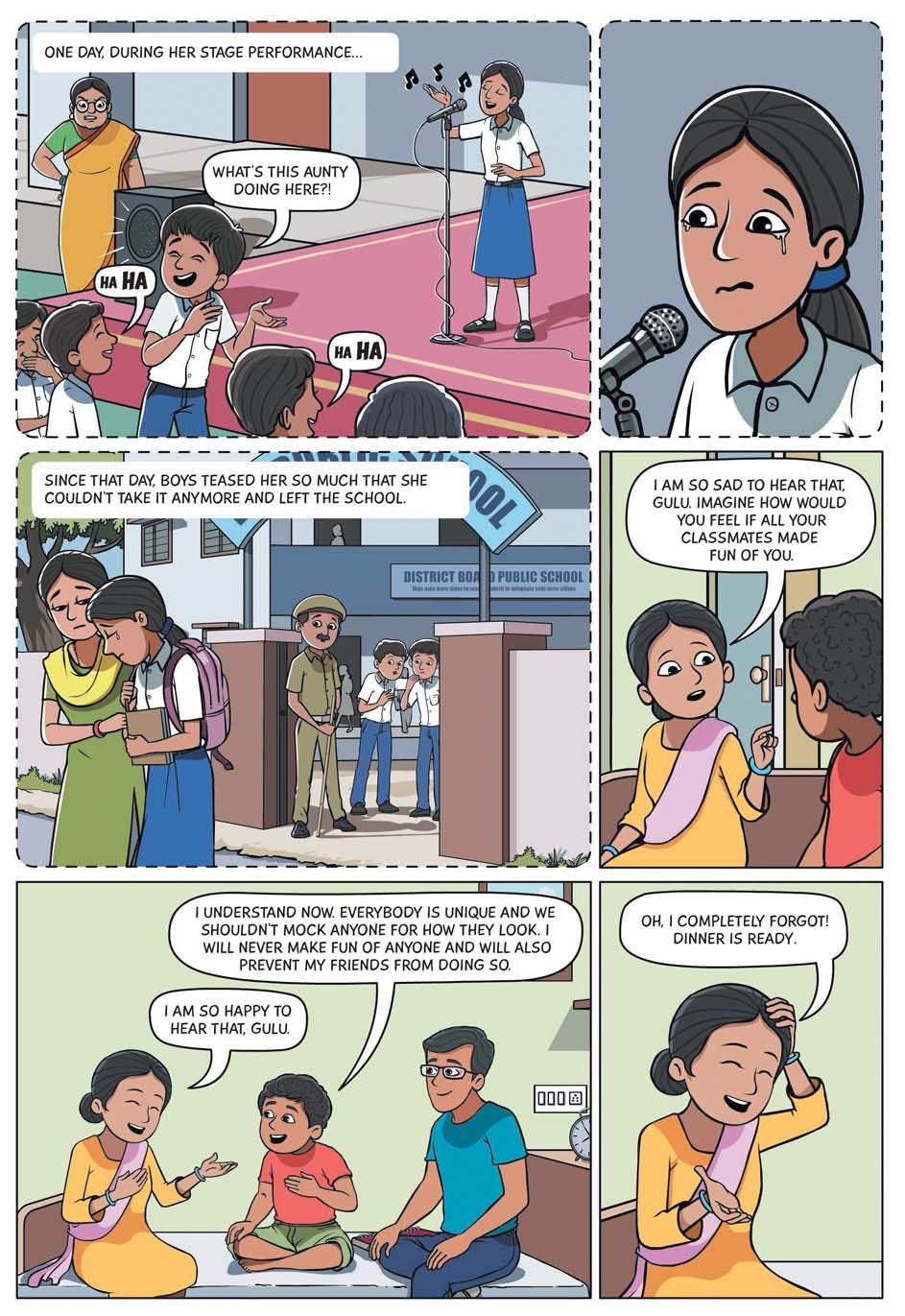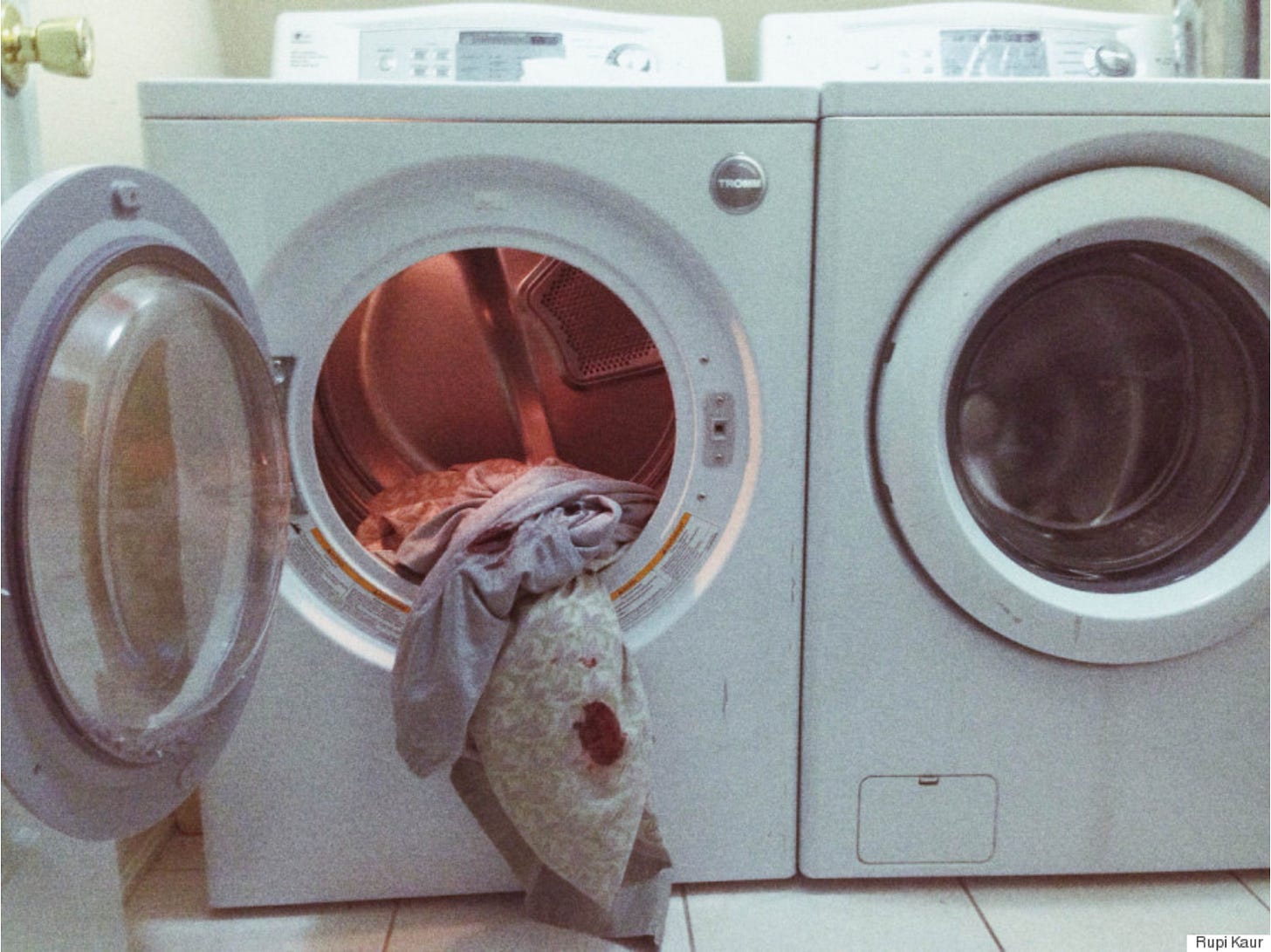The Red Revolution: Challenging Menstrual Myths in South Asia
A quiet revolution is unfolding in South Asia. From law courts to comic books, progressives are challenging millennia-old taboos surrounding menstruation.
Periods may seem marginal, but in societies where spiritual purity is as paramount as material wealth, the notion of ritual impurity becomes a salient marker of lower status.
To translate for Economists: if spirituality matters just as much as material wealth, then gender inequalities in purity are as significant as the gender pay gap.
So, if you’re not too squeamish to read about bloody vaginas, then buckle up! South Asia’s battles around period stigma testify to the complementary synergies between structural transformation, state institutions and feminist activism!
Legal Activism Paving the Way!
“Menstruation has been stigmatised in our society,” declared Gujarat’s High Court, cutting through centuries of silence. “This stigma has built up due to the traditional beliefs in the impurity of menstruating women and our unwillingness to discuss it normally”. With these words, the court issued guidelines prohibiting the social exclusion of women from public and private spaces during menstruation.
This ruling echoes a landmark decision by India’s Supreme Court, which deemed the ban on women entering the Sabarimala Temple illegal. The court's reasoning was unequivocal: treating menstruation as impure is a form of untouchability and thus unconstitutional. These judicial interventions underscore the power of India's democracy, feminist activism, and cultural contestation.

The Urban-Rural Divide: A Tale of Two Indias
Structural transformation plays a crucial role in overturning taboos, as it can mean a scientific middle-class. Atul (an Indian software engineer) proudly told me he keeps a readily supply of sanitary pads, in case they’re needed by female friends.
However, South Asia remains overwhelmingly rural, where Ambedkar’s pronouncements still ring true: “What is a village but a sink of localism, a den of ignorance, narrow mindedness, caste and communalism”.
Impure and Polluting
India
Within Hinduism, menstruation stigma may hark back to the Rig Veda (2nd Millennium BC), in which Indra slayed Vitra. Women are thought, by some, to carry the guilt of a brahmana-murder. Although educated middle-class communities often reject these taboos, others continue to regard menstruation as polluting:
“Women are subject to various cultural restrictions during these periods such as being prohibited from entering the kitchen (as it is believed that a menstruating woman may contaminate the food) and the prayer room. Here, a menstruating woman is a powerful, corrupting ‘thing’; a ‘thing’ to be feared and shunned.” (Radhika Radhakrishnan)
“Like in all orthodox families, women had to ‘sit out’ three days of their periods…Women were impure during their periods and would pollute anyone or anything they touched.. So, they sat in isolation” (Shashi Deshpande)
Bhutan
In Bhutan, menstruating women are not only barred from temples but are also prohibited from touching sacred objects or participating in religious ceremonies. Tashi Zangmo describes how menstruating women may be forbidden from approaching or touching a lama (religious teacher).
Nepal
In 2005, Nepal banned the practice of exiling menstruating women and girls, but it persists in some villages , and there are repeated reports of girls dying while ostracised.
Radha Paudel details that menstruators may be considered ‘untouchable’ and ‘impure’, and thus not supposed to participate in sacred rituals, cultural gatherings, or even school. In some communities, bathing is forbidden. They may also be restricted from touching plants and kept out of the kitchen to avoid contamination.

Bangladesh
Garment factory workers in Dhaka explained,
“In Bengali culture, menstruation is considered evil and shameful. For example, in a village in northern Bangladesh, the women of Char Bramagacha menstruate in secret because they believe malignant spirits will be attracted to their menstrual blood. They bury their used menstrual cloths in the ground or wash them before dawn while the rest of the village is still sleeping.” (Farah Ahmed)
Sri Lanka
When Zinthiya Ganeshpanchan first got her period,
“my mother immediately locked me up in a room so that I would not interact with any male family members and also to protect me from the evil spirits”. She was also asked to wear the clothes of a washerwoman (someone who is of the lowest caste). This told the family that she is ‘symbolically impure and unclean’.
Afghanistan
Miriam Siar got lucky: both her parents are doctors. They reassured her that menstruation was natural, no big deal. Free from taboos, her grandfather was extremely supportive, “Because you have your period, you should eat red meat. You need the iron”.
However, in society more broadly,
“menstruation is a shameful secret that is never discussed, not even between mothers and daughters…
Afghan women’s transition into puberty is not acknowledged partly because the subject of female sexuality remains off limits. Most teenage girls are terrified of the changes occurring in their bodies, and ignorant and confused about how to cope. To discuss it with male members of the family is unthinkable”.
Balochistan
“In Balochistan, the subject of menstruation is taboo and shrouded in myths of shame, dirt and impurity”, details Granaz Baloch. “In Baloch culture, generally speaking, from the moment a girl starts menstruating, the clock starts ticking: the family aims to have her married within two years”.
In the village, poor girls “could not afford sanitary napkins, so [rather than go to school] they preferred to stay at home.” Despite her efforts, “[i]t is extremely difficult and very challenging to talk about menstruation because of the conservative and patriarchal Balochi society”.
Tackling taboos!
Shame and stigma persist as a negative feedback loop, whereby everyone self-censors and thereby perpetuates widespread expectations that speaking out is inappropriate. Key to breaking this cycle is to normalise periods, as perfectly natural - an exciting part of growing up.
From colourful comic books to Bollywood blockbusters, from street art to social media campaigns, this new wave of activism is encouraging more open discussions.
Menstrupedia - the comic book
“Menstrupedia” is a comic book made by husband and wife double-act, Aditi Gupta and Tuhin Paul. It has been translated into 17 languages and reached an estimated 13 million girls globally! Adolescence, in all its physical and emotional changes, is presented as normal and exciting! Personally, I think it’s absolutely awesome!
Author Aditi Gupta explained,
“One of the things that we wished for when we first started out in 2013 was that girls should be able to support and educate each other about menstruation. In the past five or six years, we have seen this dream become a reality.
Older girls, after having read Menstrupedia, have started teaching younger girls in their schools about menstruation. The shame and silence which came from ignorance and fear no longer holds the same power over them”
Gupta and Paul also made a comic book for boys, which also covers the changes affecting girls.

Bollywood champions affordable pads!
Doubtless, you already know the Bollywood blockbuster, ‘Pad Man’. It’s based on a true story about Arunachalam Muruganantham, who made low-cost sanitary pads, inspired by deep love for his wife. (Loyal readers will recall my theory that romantic love is a major driver of gender equality)
Jaydeep Mandal and Sombodi Ghosh are also innovators, pioneering India’s first biodegradable pad. Besides large-scale manufacturing firms, they provide raw materials and training to villages.

Art
Artists - like Indian-Canadian Rupi Kaur - have also challenged taboos. Her social media posts actually went viral.
But guess who imposed censorship? Not Brahmin pandis, but the puritanical conservatives at Instagram and Facebook. Thanks to outrage, the companies apologised and retracted.
On street murals in Jharkhand, women are challenging stigma:
The Red Revolution!
The fight against menstruation stigma in South Asia reveals a complex battle waged on three primary fronts:
Challenging Stigma: From landmark legal rulings to educational comics, from biodegradable pads to provocative art, activists are employing a diverse array of tactics erode stigma.
Quality Education: Scientific thinking is the most powerful cure for taboos. Awareness-raising campaigns are most effective upon a foundation of population-wide reason, logic and empiricism. Quality education and liberal democracy are absolutely vital, so that young people can question social harms.
Structural Transformation: South Asia remains over 60% rural. Villages - as Ambedkar warned so emphatically - are havens of patriarchy, inhibiting dissent. Job-creating economic growth is a really important driver of cultural liberalisation, especially in democracies like India.
This three-pronged approach - directly challenging stigma, cultivating scientific mindsets, and driving structural transformation - will help drive the Red Revolution!
For parallels in Kenya, see “Stigma of staining? Negotiating menstrual taboos amongst young women in Kenya” by Kiera MacLean, Christopher Hearle, and Kanchana N. Ruwanpura























I got in trouble on Indian Twitter for talking about this. In some parts of India when a girl gets her first period there's a ceremony and celebration. Someone posted an article about this criticizing the practice. All the conservative folks commented how great that their religion is for celebrating adulthood etc.
I asked them then why the same religion isolates them during periods, bans them from doing religion rituals and entering temples and in temples like Sabarimala bans entry altogether of women between ages of 10-50. A woman got into a spat and verbally abusing me which was a very long exhaustive thread. From her language she seemed to be a well educated person. The essence was it is our centuries old tradition and "dharma" so on. I really d ont engage with trolls but I had to engage with her. Luckily no one complained about hurting community sentiments and removing my post like as happened with Rupi Kaur.
I'm a male Ob/Gyn based in the US and I find these customs reprehensible. The impurity nonsense and stigma in India and other S. Asian countries is appalling and many well educated Indian fami lies/ women still routinely practice it.
The speed of urbanization in Bangladesh has been pretty astonishing